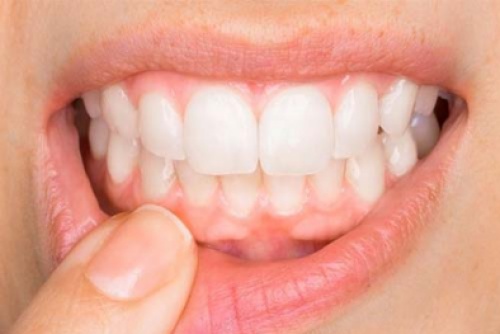Are you concerned about your dental health? If so, you’re not alone! One of the most common concerns that people have when it comes to their teeth and gums is whether or not they are healthy. While regular visits to the dentist can help you spot and deal with dental problems early on, it’s also good to keep an eye out for the warning signs of dental issues. That way, you can take steps to prevent any serious damage from occurring later on down the road and you can get an issue dealt with quickly before it becomes something much worse!
Most Common Dental Problems
(1) Teeth Grinding
Grinding or clenching your teeth is a common dental problem that happens during sleep. If you clench your teeth often, you can cause excess wear on them, resulting in pain and damage. Try getting yourself a custom night guard from your dentist. These appliances will help keep your teeth from grinding as you sleep. Another option is to try using an over-the-counter mouth guard if you’re just looking for short-term relief. It should be noted though that it takes around two weeks for these products to work effectively. Another easy fix for teeth grinding is simply to chew gum when you’re awake throughout the day—it helps take your mind off of it so there’s less of a chance that you’ll grind at night.
(2) Tooth Decay
The most common dental problem, tooth decay, is an infection that damages the hard tissues of your teeth, often from bacteria in your mouth. While tooth decay can occur on any surface of a tooth, it’s more common along the grooves and under fillings. Tooth decay typically causes pain, but it can go unnoticed until it’s severe. If you have noticed holes or broken teeth, contact your dentist immediately. Untreated cavities can worsen over time and could cause serious issues like infections or bone loss. Brushing with fluoride toothpaste daily, flossing regularly, rinsing with Listerine or salt water after eating sugary foods, and seeing your dentist every six months are among some of the best ways to prevent tooth decay.
(3) Plaque Buildup
In order to maintain healthy teeth, you must take steps to prevent plaque buildup on your teeth. Plaque will collect above and below the gum line if you are not diligent about brushing at least twice a day and flossing once a day. Once plaque is removed from your teeth, you can treat small amounts with home remedies. Larger amounts may require professional cleaning by a dentist or dental hygienist in order to prevent damage from occurring.
(4)Gum Disease
The simplest way to prevent gum disease is by regular brushing, flossing, and cleaning between your teeth at least twice a day. If your gums bleed when you brush or floss, that’s a sign of active periodontal disease. See your dentist for treatment. It’s usually not too late for early gum disease; in fact, it’s treatable when caught early enough! Most treatments include surgical procedures (such as scaling and root planing) and daily maintenance regimens such as topically applied antimicrobial agents such as chlorhexidine gluconate rinses or systemic antibiotics for example doxycycline. Systemic antibiotics are reserved for patients with more severe cases because they can have side effects like upset stomach, headaches, vaginal yeast infections, dizziness, nausea and more – which means they shouldn’t be taken without medical supervision.
Mario's public profile
Post a new article.
Sign in or create a new account to get started. 100% FREE.





 Most Common Dental Problems and How to Treat Them
Most Common Dental Problems and How to Treat Them










